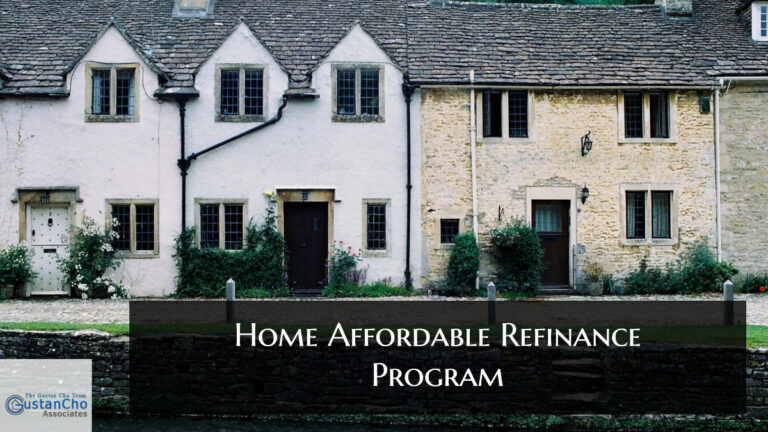This blog will compare FHA versus conventional rates on home purchase and refinance transactions. Is FHA versus conventional rates on purchases and refinance lower? This is one of the most frequently asked questions at Gustan Cho Associates. Getting the best mortgage rates is important.
Lower rates mean tens of thousands of savings over the home loan term. This is why borrowers should always compare and contrast not just mortgage lenders but loan programs as well.
Over 35% of all home loans in the United States are FHA loans. FHA loans are very popular due to the government guarantee by HUD. HUD is the parent of FHA. FHA is not a lender.
What Is The Function of HUD and FHA?
HUD does not originate nor fund FHA loans. HUD, the parent of FHA, is a government agency that insures and partially insures banks and lenders whose FHA loans are in default or foreclosed. FHA will cover all or a partial loss the bank or lenders have taken a hit. For FHA loans to be insured, lenders must follow all of the minimum HUD Agency Mortgage Guidelines.
The Role And Function Of The Federal Housing Administration
Banks and private lenders are the financial institutions that originate, process, underwrite, and fund FHA loans. The role and function of FHA are to insure and partially guarantee lenders on FHA loans that defaulted and foreclosed.
FHA will insure and partially guarantee the lender’s loss. Due to this government guarantee, lenders can offer FHA loans with a 3.5% down payment with less-than-perfect credit at low mortgage rates.
There are instances where homebuyers will get lower rates on FHA versus conventional loans. In other instances, a conventional loan will be a better fit for a mortgage borrower. We will look at the best loan program in this article for a borrower.
Comparing FHA Versus Conventional Rates
Many homebuyers automatically assume FHA loans have higher mortgage rates due to the lenient agency mortgage guidelines versus conventional loans. This is not the case. It is the exact opposite. Due to the government guarantee, mortgage rates on FHA loans are between 0.25% to 2.00% lower than conventional loans for borrowers with similar credit scores.
Credit Scores Versus Pricing on Mortgage Rates
The higher the borrower’s credit scores, the lower the mortgage rates. Borrowers with lower credit scores will get lower mortgage rates on FHA versus conventional loans.
Conventional loans are not insured nor partially guaranteed by any government agency. Therefore, mortgage rates on conventional loans are substantially higher for lower credit score borrowers.
For example, the minimum credit score to qualify for conventional loans is 620 FICO. Mortgage rates on conventional loans for a borrower with a 620 credit score may be very high, plus lenders will require discount points. On FHA loans with a 620 credit score, mortgage rates may still be reasonable with no discount points. Often, it is best to go with an FHA loan for borrowers with under 680 credit scores.
How Do Lenders Price Mortgage Rates On FHA Loans?
Higher risks mean higher rewards. This holds true with lenders. Borrowers with layered risk factors will be charged a loan-level pricing adjustment, often called LLPAs. LLPAs are pricing adjustments to the mortgage rate on negative factors that induce risk for lenders.
Factors That Affect Pricing on FHA Versus Conventional Rates
Here are the main factors that affect mortgage rates on FHA loans:
- Borrower’s Credit Score
- Minimum And Maximum Loan Amounts: There are pricing hits on under $200,000 loan balances and pricing adjustments on high-balance FHA loans in high-cost areas
- Loan Type (Single-Family Home Purchase, Streamline Refinance, 203k Rehab, Manufactured Homes, FHA high-balance, 2 to 4 unit multi-family, condominiums, Construction)
- Detached Single-Family Homes are considered the safest investments for lenders with no pricing adjustments.
- Manual Versus Automated Underwriting System
- Debt To Income Ratios
- Property Location: There are pricing adjustments to mortgage rates in declining housing market areas and other areas due to geographic factors which induce risk to the lender
- There are no loan-level pricing adjustments on prior bad credit
Pricing Adjustments On Conventional Loans
There are no pricing adjustments for borrowers with prior bad credit such as bankruptcy, foreclosure, deed-in-lieu of foreclosure, short sale, late payments, outstanding collections, and charged-off accounts. Pricing mortgage rates on conventional loans are similar to FHA loans. All the above factors will impact mortgage rates on conventional loans.
How Pricing On Conventional Loans Work Compared To FHA Versus Conventional Rates
Since conventional loans are not insured or partially guaranteed by a government agency, loan-to-value plays into pricing mortgage rates. The lower the loan to value, the more safety lenders have. Therefore, a lower loan-to-value means better mortgage rates and lower loan-level pricing adjustments on conventional loans. Conventional loans normally benefit borrowers with higher credit scores and larger down payments.
Lower Rates Versus Higher Housing Payments Due To Mortgage Insurance
All 30-year fixed-rate FHA loans have mandatory FHA mortgage insurance premiums. A one-time 1.75% upfront FHA MIP can be rolled into the balance of the FHA loan. The second mortgage insurance premium is the annual 0.85% FHA Annual MIP charged for the life of the 30-year fixed-rate FHA loan. With conventional loans, private mortgage insurance is not required for borrowers with 20% or more equity in their home purchase.
Mortgage Insurance on Conventional Loans
Difference Between FHA versus Conventional rates, rates on FHA loans are lower, but you have a lifetime FHA annual MIP on 30-year FHA fixed-rate loans.
For any loan to value over 80% LTV, private mortgage insurance is required on conventional loans. However, the rate of private mortgage insurance is not fixed like FHA.
PMI premiums vary depending on the borrower’s credit scores and the loan to value. Borrowers with lower credit scores and higher loan-to-value may get higher premiums on private mortgage insurance. When comparing mortgage rates on FHA versus conventional loans, borrowers must also compare and contrast the overall housing payments, including mortgage insurance.









